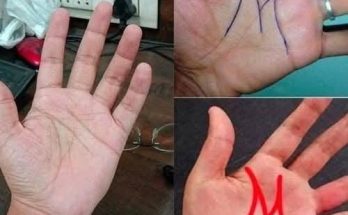A Punch A Pause And Then? They Realized the New Girl Wasnt Who They Thought

Bullies Punched a New Black Girl in The Face — Big Mistake… They Had No Clue Who She Really Was.. They thought she was just another quiet new girl, an easy target with dark skin and no one to back her up. But when the bullies swung first, they didn’t just hit a girl—they hit a storm they couldn’t control. The slap echoed across the hallway, and what came after shocked everyone. Because the moment she stood up, the power in that school shifted forever. At Crestwood High, the cafeteria buzzed like a beehive at noon. Plastic trays clattered, sneakers squeaked, and the smell of greasy pizza mixed with bleach hung in the air. Students filled every table, laughing, yelling, scrolling through their phones. In the middle of that chaos sat Jordan Meyers alone, her tray untouched except for a carton of milk.
She tried to disappear, eyes steady on her food, as she had always done since transferring mid-semester from Atlanta. From across the room, Chase Morgan, a popular senior, spotted her. His varsity jacket half-unzipped, he strode over with confidence, flanked by his friends. Bela Hayes, his on-and-off girlfriend, leaned back in her chair, smirking. “Watch this,” she whispered, pulling out her phone to record. “Hey, new girl,” Chase drawled, leaning over Jordan’s table. “You lost or something? This isn’t the scholarship section.” His friends snickered. Jordan didn’t look up. She cut into her apple slices with a plastic fork, slow and deliberate, trying to ignore him.
Chase frowned, leaning closer, his breath smelling of soda. “Heard you came from some tough school in Atlanta. Guess they don’t teach manners there.” Jordan remained silent, focused on her apple. Chase looked at Bela, who mouthed, “Do it.” With a smirk, he knocked Jordan’s tray clean off the table, milk splashing across the floor and fries scattering everywhere. The cafeteria gasped. Someone started filming. Finally, Jordan looked up—not with anger or fear, but with calm, cold determination. Her eyes locked onto Chase’s, measured and unreadable. That calmness unsettled him. “What? You going to cry?” he barked louder.

It started like any other Tuesday morning at Westbridge High — pristine halls, polished floors, and the usual quiet hum of small-town predictability. By 8:17 a.m., everything changed. A new student walked through the doors: Aaliyah Johnson, sixteen, wearing a faded gray hoodie, a secondhand backpack, and a calm silence that immediately drew stares.
She wasn’t flashy, didn’t try to blend in or stand out. But in high school, being different is dangerous. By lunchtime, the whispers had already started.
“She’s new. From the city.”
“Probably on scholarship.”
“Look at her hair — she thinks she’s better than us.”
Aaliyah ignored it. She picked a quiet table in the corner, opened her notebook, and began to write — a habit that kept her grounded. Her tray carried a simple sandwich, an apple, and the air of someone who didn’t need validation.
Then came Table Six — the “queen table,” ruled by Brianna Marsh, the cheerleader everyone wanted to befriend and secretly feared. As Aaliyah walked by, Brianna extended a perfectly manicured leg.
The tray crashed. Food splattered. The cafeteria erupted in laughter.
“Watch where you’re going, city girl,” Brianna smirked.
Aaliyah stood up slowly. Her cheek flushed, her sandwich ruined, she brushed off the crumbs and met Brianna’s eyes. She said nothing. No insults. No anger. Just silence — the kind that makes bullies uncomfortable. Then she turned and walked away.
It should’ve ended there. But pride never lets cruelty stop where it should.
The next day, the taunting grew louder. Notes in her locker. Whispers in the hall. A shove by the vending machines. And by Wednesday, the tension snapped.
Aaliyah was heading toward the vending machine when Brianna and her two loyal followers blocked her path.
“You think you’re special?” Brianna sneered.
“Too good to say sorry?”
Aaliyah exhaled slowly. “I don’t need to say sorry for existing.”
The cafeteria froze. Conversations died mid-sentence. Brianna’s face darkened.
Then came the sharp sound of skin meeting skin.
SMACK.
The punch echoed through the cafeteria. Aaliyah staggered, caught herself, one hand pressed against her cheek. No one moved. Some kids gasped. A few laughed nervously.
Everyone waited for her to cry. Or yell. Or run.
Instead, Aaliyah straightened her back, raised her chin, and said calmly, “You shouldn’t have done that.”
Then she walked out.
The room buzzed. “Is she crying?” someone whispered. “She’ll transfer by next week,” another said.
They were wrong.
By Thursday morning, a sleek black SUV rolled into the school parking lot. Its tinted windows reflected the morning sun, drawing a wave of murmurs. When the door opened, a man stepped out — tall, broad-shouldered, wearing a pressed military uniform covered in medals.
Major General Anthony Johnson, U.S. Army.
He walked toward the entrance with quiet authority, boots clicking against the pavement. The principal, pale and flustered, rushed to greet him.
“Good morning, sir. May I help you?”
“Yes,” the man said evenly. “I’m here for my daughter — Aaliyah Johnson.”
The whispers spread through the halls like a shockwave. Her father was a general? The same girl they had laughed at for her thrift-store hoodie and quiet voice was the daughter of one of the highest-ranking officers in the country.
And the surprises didn’t stop there. Word soon spread that her mother was a federal judge — a woman known for her groundbreaking civil rights cases.
That afternoon, the principal’s office was crowded. Aaliyah sat beside her father, calm as ever. Across from them, Brianna and her parents fidgeted in their seats.
Principal Reynolds tried to start with pleasantries. “We’re terribly sorry for what happened, General. This behavior is—”
Aaliyah lifted her hand, stopping him. Her voice was soft but firm. “No. Let her explain.”
Brianna froze. Her mother nudged her. “Say sorry.”
Brianna stammered. “I didn’t mean to—”
“Yes, you did,” Aaliyah interrupted gently. “You thought I was small. Easy to humiliate. You didn’t know who I was — but you thought you knew what I was worth.”
She opened her notebook — the same one she carried every day — and placed it on the desk. The pages were filled with sketches, poems, and notes about courage, bullying, and dignity. On the final page, in bold handwriting, were the words:
“Strength isn’t how loud you are. It’s how you rise after someone tries to break you.”
The room fell silent. The principal said nothing. Even Brianna’s father looked down, ashamed.
By the end of the day, the school board voted to suspend Brianna and her friends for physical assault. But the real consequences came later — beyond the school walls.
When the video of the punch, paired with Aaliyah’s quiet composure, hit social media, it exploded. Overnight, the story went viral.
“She didn’t fight back — she stood tall.”
“She’s the general’s daughter.”
“No, she’s her own hero.”
Hashtags like #AaliyahStrong and #GraceUnderFire trended for days. News outlets picked it up, calling it “a masterclass in silent strength.”
But the Johnson family didn’t chase attention. They didn’t sue. They didn’t demand vengeance. They simply asked for one thing — accountability.
A week later, Aaliyah was invited to speak at a youth assembly about bullying. She declined most requests — except one. The one at her own school.
Two weeks after the incident, Westbridge High’s gymnasium was packed. Every student, every teacher, every parent filled the bleachers. Cameras were banned. No reporters. Just Aaliyah.
She walked to the center of the gym floor — no microphone, no notes — and began to speak.
“You thought you hurt me,” she said, her voice steady. “But you reminded me who I am. I am the daughter of people who fought for this country. The granddaughter of a woman who couldn’t vote until she was thirty. And I am the student who will graduate because I refused to let hate define me.”
You could hear a pin drop.
She looked around the gym — at faces that once mocked her, at the principal, at Brianna, sitting in the back row with her head down.
“You don’t have to know who someone is to treat them with respect,” Aaliyah said quietly. “Because if you wait to find out — it might be too late.”
For a moment, silence hung heavy. Then the applause began — hesitant at first, then thunderous. Teachers wiped tears. Students stood. Even Brianna clapped through her shame.
That moment changed Westbridge High forever.
Weeks later, Aaliyah received a handwritten letter from the First Lady. It read:
“The strength you showed is the strength this nation needs. You reminded us that dignity does not shout — it stands.”
She tucked the letter into her notebook, beside the final page, and went on with her life.
Months later, Brianna approached her quietly after school. No cameras, no audience. Just a whispered, “I’m sorry.”
Aaliyah nodded. “You were wrong,” she said. “But I forgive you.”
It wasn’t friendship, but it was peace.
By the end of the year, Westbridge High introduced a new annual award — The Courage Award — given to a student who demonstrates integrity in the face of cruelty. The first recipient was Aaliyah Johnson.
The plaque still hangs in the main hallway. It reads:
“For reminding us that dignity needs no defense, and that true strength stands in silence until the world is ready to listen.”
Aaliyah never asked to be a symbol. But her story became one — a reminder that silence isn’t weakness, and grace under pressure can move mountains.
Because when they hit her, they thought they were breaking a quiet girl from the city.
They were really striking the daughter of a warrior, the child of justice, and the embodiment of a generation that refuses to bow.



